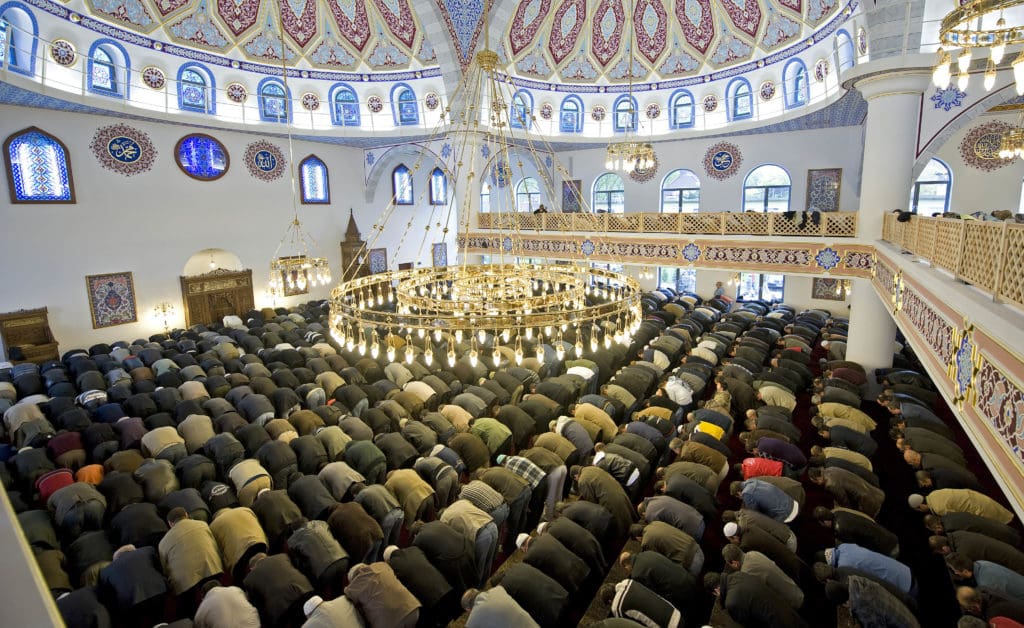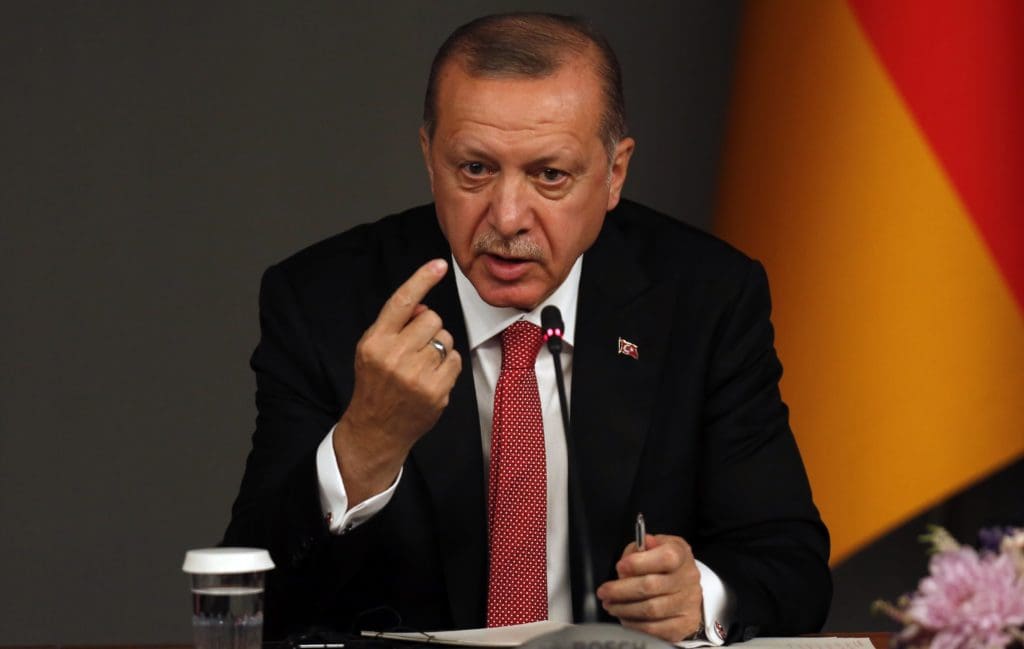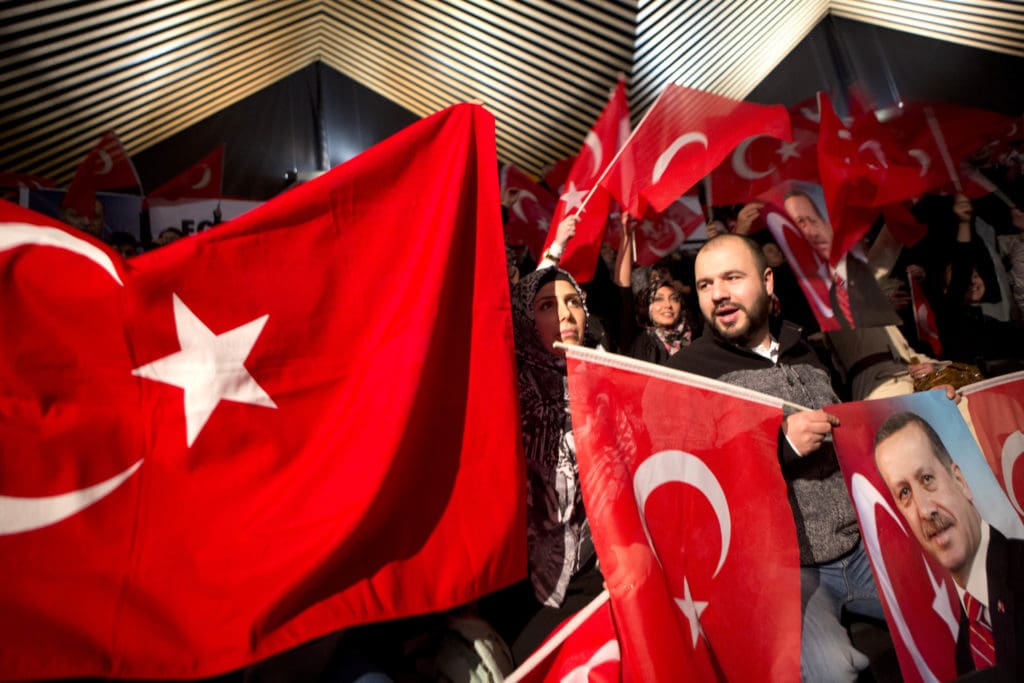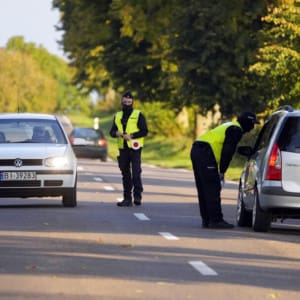Germany is a country with an immigrant background, and its wealth and prosperity would not have been possible without immigrants, German President Frank-Walter Steinmeier claimed on Tuesday during a visit to one of the traditional industrial zones in the Ruhr area.
“I always say that it is not the people who have an immigrant background, but Germany the country itself that has an immigrant background,” the federal president said in a speech to the workers of the Friedrich Wilhelm Ironworks in Mülheim an der Ruhr, where 45 percent of the factory workers are of foreign descent.
He recalled that it was exactly 60 years ago that Germany had concluded an agreement with Turkey to host guest workers.
“The guest workers came to help build a fast-growing economy. Without their work, much of the prosperity experienced in our country would be impossible,” Steinmeier said, according to Hungarian public news outlet MTI.

Steinmeier’s claims, however, are not necessarily backed up by data.
Although Turks who came to Germany after the war aided the country regain its footing following a critical manpower shortage, the “guest workers” were never supposed to stay. However, many of them did. They are now considered the worst-integrated of all immigrants despite their long track record in the country, according to a report from the Berlin-based Institute for Population and Development.
The report found that immigrants of Turkish origin were the “least successful of all immigrant groups in the labor market and they are often jobless, the percentage of housewives is high and many are dependent on welfare… The state of Saarland was found to have the worst record — 45 percent of its Turks had no educational qualification of any kind.”

Even second- and third-generation Turks struggle to integrate into German society despite having decades-long roots in the country. They feature some of the highest rates of welfare of any immigrant group and high crime rates, including a large organized crime network As Der Spiegel wrote, many young Turks have failed to integrate into German society and some of them are open that they feel there is “nothing” good about the country. In terms of work prospects, severe challenges remain:
“Almost a third of all men and women with foreign roots between the ages of 25 and 35 have no professional qualifications. The data is especially alarming for the roughly three million Turkish immigrants, Germany’s largest minority. The share of young Turks with no professional qualifications rose from 44 to 57 percent between 2001 and 2006. This figure alone — 57 percent — perfectly illustrates the sheer magnitude of the failure on both sides.
A research report by the Federal Office for Migration and Refugees concludes that four out of five Turks in Germany between the ages of 38 and 64 have no more than a junior high school education, while only a little more than a quarter have at least five years of schooling.”
Perhaps even more alarming in terms of integration is the contrast between of how Germans like to see their country — which they perceive as an “open society” that tolerates LGBT people and frowns upon autocrats, patriarchal norms and religious extremism — and the values that Turkish society in Germany continue to hold dear.
The evidence that perhaps best defines this phenomenon is the voting patterns of Turks, many who are dual citizens and have the right to vote both in Germany and Turkey. Data showed that nearly 500,000 voted in the 2018 Turkish elections, which is about half who are eligible to vote. Of that number, 65 percent voted for Recep Tayyip Erdoğan, widely seen as a radical Islamic autocrat. With only 52 percent of Turks voting for Erdoğan in Turkey, that means Erdoğan dramatically outperformed in Germany compared to his own country.
While Steinmeier praised Turks for their contributions to Germany this week in the Ruhr area, he said that the made the country more “diverse” and “open.” While Turks have unquestionably made Germany more diverse, it is questionable whether they have made the country more “open.”

After the election results, Erdoğan supporters took to the streets of Germany draped in Turkish flags, chanting, “Allahu Akbar.” Turks have routinely conducted such rallies in the past in Germany.
Chancellor Angela Merkel famously said in 2010 that “multiculturalism has failed, utterly failed” and that the onus for integration was on people migrating to Germany. Merkel’s remarks came the same week that Horst Seehofer, who is now serving as the country’s interior minister, called for a halt of all Arab and Turkish migration to Germany. Despite her claim that “multiculturalism has failed,” she subsequently opened up Germany to over a million migrants in 2015-2016.

According to the latest data from the Federal Statistical Office in 2019, 36 percent of the German population, or a total of 21.2 million people, have an immigrant background. This is a 2.1 percent increase from the 20.8 million registered a year earlier. According to German law, a person with at least one parent who is a German citizen by birth may be a resident of Germany.
Fifty-two percent of the population with an immigrant background, or 11.1 million people, are German citizens and were born in Germany. Almost two-thirds of the population with an immigrant background are people from within Europe and their descendants.
In terms of country of origin, the largest group is made up of Turks, with a share of 13 percent. In second place are those from Poland, with 11 percent. In third place is a group of people with an immigrant background from Russia, with 7 percent.






